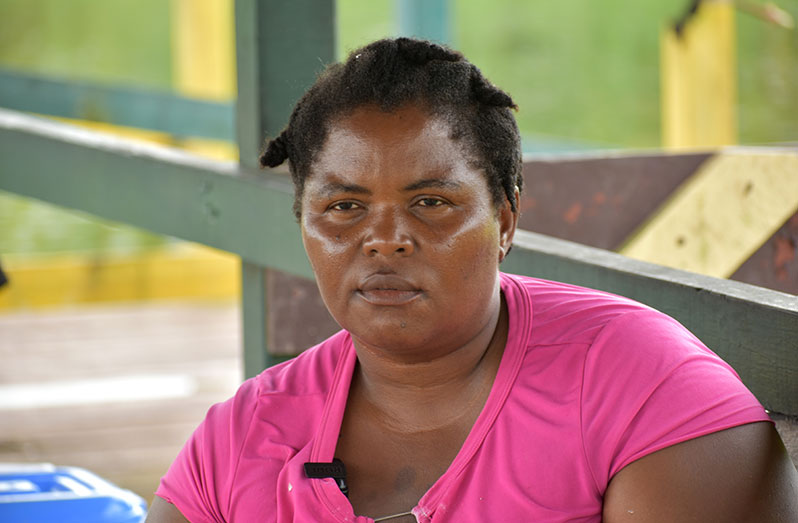ALMOST a year after Baracara was hit by severe flooding, the farmers and fisherfolk of the Region Six riverine community are still struggling to recover from the disaster that had destroyed their livelihoods and upturned their lives.
During a recent visit to the community, the Guyana Chronicle was informed that many have not been able to quite get back on their feet.
According to the Chairman of the Community Development Council (CDC), Marshall Thompson, it has been particularly hard for residents since they depend solely on agriculture and logging for an income.
“Last year [the flood] was extreme…I’ve never seen that excessive amount of water. Some of our fruit trees die out, 80 per cent of our animals die out, all of our farms drowned,” he said adding that it was the worst flood in 42 years.
Thompson emphasised that the fisherfolk in the community also felt the “squeeze” and, today, they are still unable to get large catches.
He told this publication that they would usually benefit from a seasonal catch during the dry season. However, the residents have not been catching the large number of fishes that they usually do in the last few months.
“That flood really destroyed us, “Thompson said.
Meanwhile, Nicleta Amsterdam, a cash crop farmer, told this publication that her farm and her livestock were completely destroyed.
“All the plants die out [and] all the animals die out…we suffered a lot with the flood,” she said.
Amsterdam stated that extension officers from the Ministry of Agriculture had visited the community shortly after the flood waters had receded and rendered some assistance in the form of cash crop seeds and some farming equipment. However, much more assistance is still needed, she added.

“Nothing has not really recovered from this flood as yet. We are just trying to make life in here,” the woman said, adding: “The flood affects us a lot. In my life I’ve never seen so much water.
That was the highest flood I ever saw. If we had to move, we had to move in a boat.”
Another cash crop farmer who identified herself as “Aunty Euette”, related that she too had been trying to make ends meet as she was currently replanting her farm.
She noted that “things” were still slow as the little fruits and vegetables she had been able to reap from her farm, since the floods, had not given her much profit.
“In Baracara we used to get a lot of fruits, but, in 2021, the flood kill a lot of fruits, a lot of cherry trees and mango tress, those died out,” she said.
According to the farmer, pineapples and plantains were among the main crops planted up until the floods came. “The 2021 water destroyed our crop a lot. Right now, we don’t have plantain like before and the pineapples are just catching back themselves.”
In an invited comment on the plight of the farmers, Agriculture Minister, Zulfikar Mustapha, stated that his ministry had been in contact with them and assistance had been given.
The minister noted that seeds, farming equipment and fertilizers were recently distributed to the farmers and talks have begun to make provision for river transportation to help them transport their produce from their farmlands to markets.
“I’m looking now to see how we can help them with transportation so that they can bring out their produce to the market…Baracara has been getting their fair share of help,” he said.
Additionally, the minister disclosed that he intended to visit the community as a part of his countrywide farmers’ outreach to hear, firsthand, their concerns.
“I have been ensuring that these far-flung areas are getting these benefits that other communities are getting. I plan myself to go up there to continue my outreaches,” he said.





.jpg)








